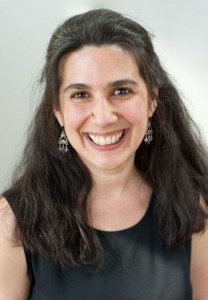By Savannah Cooley (B.A. ’16)
 The announcement of a $450,000 grant from the Health Foundation of Central Massachusetts sounded a clear and hopeful note at press conference on “Addressing Youth Homelessness in Worcester,” on Feb. 15 at the YWCA in Worcester.
The announcement of a $450,000 grant from the Health Foundation of Central Massachusetts sounded a clear and hopeful note at press conference on “Addressing Youth Homelessness in Worcester,” on Feb. 15 at the YWCA in Worcester.
Laurie Ross (left), Clark University associate professor and co-director of The Compass Project, made introductions and presented a detailed report on findings from a 2012 point-in-time survey on youth homelessness, which was coordinated by the Community Roundtable on Youth Homelessness, The Compass Project, and Clark University.
Speakers at the press conference included Massachusetts Rep. James O’Day and Sen. Harriette Chandler. Chandler praised Ross’s “wonderful leadership” in the efforts to better engage and serve homeless and at-risk youths in Worcester.
In October 2012, young people were surveyed at city shelters, youth programs, outside of schools, in parks, and on the streets of Worcester. Out of the 753 young people (ages 13 to 25) surveyed, 120 (16 percent) identified as homeless. The study defines homeless to include young people in shelters, staying with others temporarily (i.e. couch surfing) or on the streets. In addition to these 120 young people, another 220 youths who were housed reported that they had a friend who was homeless, Ross reported. She emphasized that, due to the non-random nature of the data collection, the results can only be used to describe the sample and cannot be generalized to all youth and young adults in Worcester.
“This pioneering initiative demonstrates how youth homelessness is indeed a problem,” said Ross. “As in prior years, when compared to their housed counterparts in this survey, unaccompanied youth who are homeless have experienced more residential instability and family conflict, have more precarious income situations, are more likely to have children, and have faced more barriers to accessing services,” she reported.
Ross, who is associate director for the Department of International Development, Community, and Environment (IDCE) at Clark, is a leader in the field of community-based participatory research on social justice and youth development.
Katherine Calano ’12, a Clark student pursuing a master’s degree in Community Development and Planning, served as The Compass Project’s outreach coordinator. She is one of many Clark students involved with project.
The Compass Project received a planning grant in 2010 from the Health Foundation of Central Massachusetts and, over five years, plans for funding totaling about $2 million in order to create a system to prevent and intervene early in youth and young adult homelessness. This support system would comprise a network of eight to 10 “frontline” non-profit organizations, including the Worcester Youth Center and the Boys and Girls Club, and a case management system to help youths individually.The symbiosis of low-barrier or easy accessed contact points and the case management system aims to help all vulnerable youths: “One of the things that makes us different is we’re trying to have a collaborative approach, knowing that one agency can’t serve all young people,” Ross commented. “You don’t want to raise expectations, but at the same time there are young people falling through all kinds of cracks in the city. We know from the pilot year that the families we’re working with and the young people we’re working with never had this much help before.”
Clark University graduate student Katherine Calano ’12
The project’s first year began with a planning phase that identified underlying causes of youth and young adult homelessness, conducted an in-depth analysis of resources, and developed a specific set of proven strategies. The strategies were piloted during 2011 and the first phase of implementation occurred in 2012 to be continued in 2013. A final year of funding will help make The Compass Project a sustainable system, Ross noted.
In 2009, Ross helped formulate the methodology to create a model for surveying youth homelessness and then assisted in data analysis. She introduced this project to her “Community Needs and Resource Analysis” course at Clark. Over two years, her students conducted survey counts for the project, which gave them hands-on experience in learning about and doing needs assessments.
Graduate students taking IDCE assistant professor Marianne Sarkis’ class, “Social Network Analysis” also contributed by using a social network analysis tool to look at the current state of communication and connections among the network agencies. Students will repeat this analysis in a year to see whether these organizations are becoming more of a sustainable system.
The role Clark University plays in the research and analysis is crucial, says Ross. “It would be very expensive for the group to do it without us. And to have a university behind this process gives a lot of validity to the count.”
As an outreach coordinator, Calano works with different agencies and service providers to distribute the surveys to their clients. She also recruits volunteers to hand out the surveys on the streets. In her senior year, Calano became Ross’s research assistant, helping with a project for the MA Interagency Council on Housing and Homelessness (ICHH). The lieutenant governor commissioned the ICHH to create a definition and methodology for counting homeless youth at a state level. A lot of Ross’s previous work in Worcester was applied to the creation of a state-level methodology, along with new research Calano and others conducted.
“Because it’s such a tightknit network of people who really know the homeless youth populations, they are very qualified to advocate for policies and resources to be brought into the community,” Calano remarks. “Having that social capital enables The Compass Project to use the survey and expertise to first understand the range of needs the homeless youths have and then effectively advocate for new policies.”
Clark students’ involvement with The Compass Project embodies Clark’s motto of “challenge convention, change our world” and Clark’s model of Liberal Education and Effective Practice (LEEP). This model integrates intellectual and academic resources at the University—from the classroom to the research laboratory to teams and student led organizations—with skills essential in the 21st century.
“It is challenging convention for these groups of organizations that don’t necessarily work directly with homeless youth, but work with youth in general, to extend their expertise and resources toward a project like this. It is important so that it isn’t just homeless services standing alone. Having college students, agencies, professors, and government officials working together is a big community effort.” ~ Katherine Calano ’12
The ongoing project poses many challenges, Ross acknowledges: “It’s so complicated. When you’re trying to develop system so that ‘no young person will be turned away,’ there are so many things to consider. There’s no standard practice in counting homeless youth. There’s a lot written about why they’re different from adults, but there’s no model that’s evidence based on preventing and intervening early on youth homeless. So we’re creating that and it’s challenging. We want to create a system that’s inherently Worcester: It’s not imported from somewhere else and it’s the reality of our community.”
With a powerful vision and the support of a network of organizations, The Compass Project works toward ending youth homelessness in Worcester with a community-specific approach, but one that can serve as a model for other communities throughout all of Massachusetts and the entire nation.
Founded in 1887 in Worcester, Massachusetts, Clark University is a small, liberal arts-based research university addressing social and human imperatives on a global scale. Nationally renowned as a college that changes lives, Clark is emerging as a transformative force in higher education today. LEEP (Liberal Education and Effective Practice) is Clark’s pioneering model of education that combines a robust liberal arts curriculum with life-changing world and workplace experiences. Clark’s faculty and students work across boundaries to develop solutions to contemporary challenges in the areas of psychology, geography, management, urban education, Holocaust and genocide studies, environmental studies, and international development and social change. The Clark educational experience embodies the University’s motto: Challenge convention. Change our world. www.clarku.edu
This story first appeared on the Clark University News Hub.


